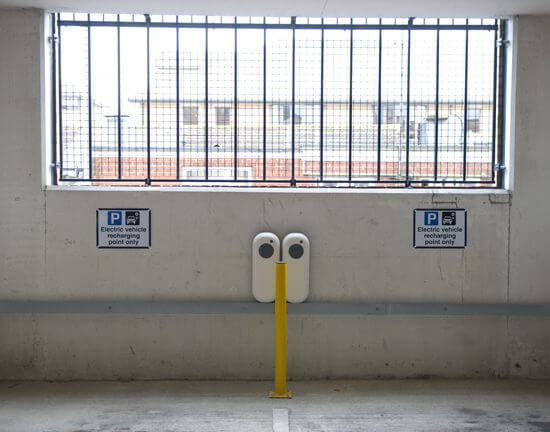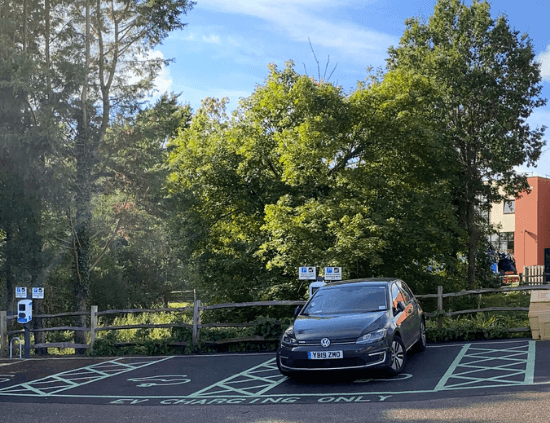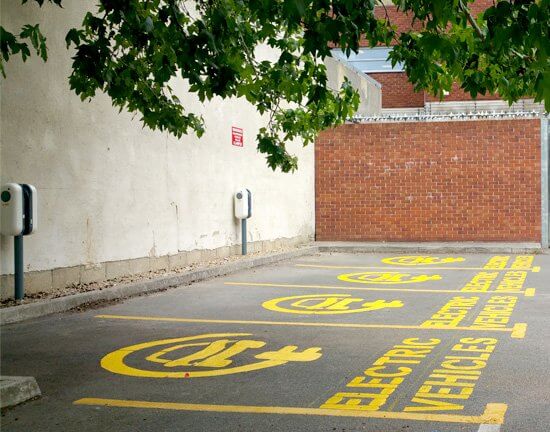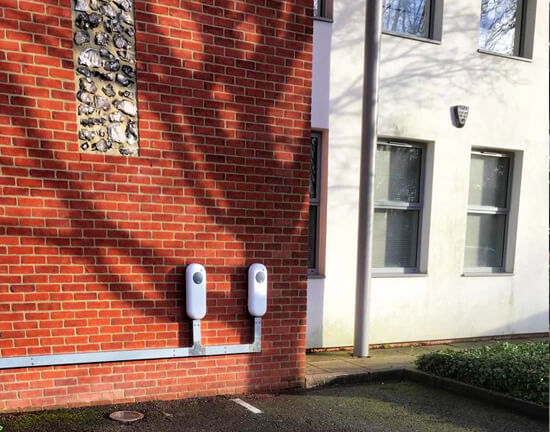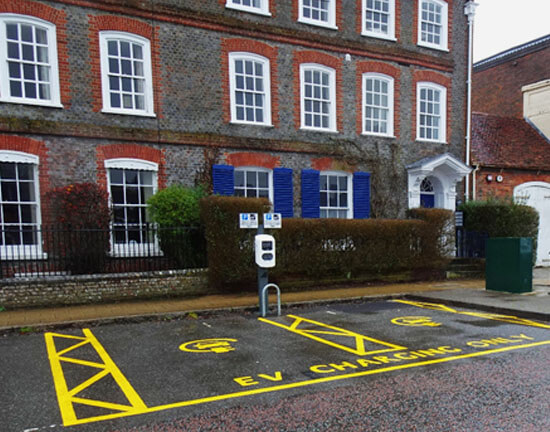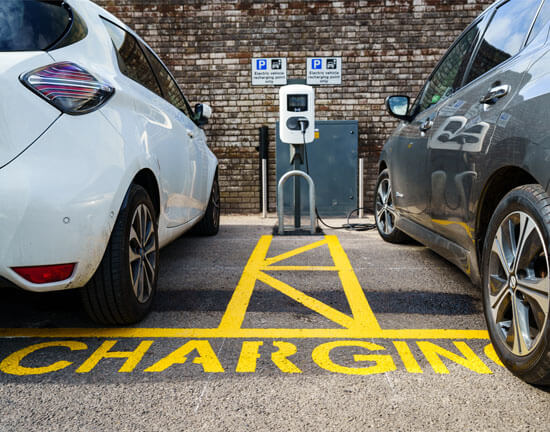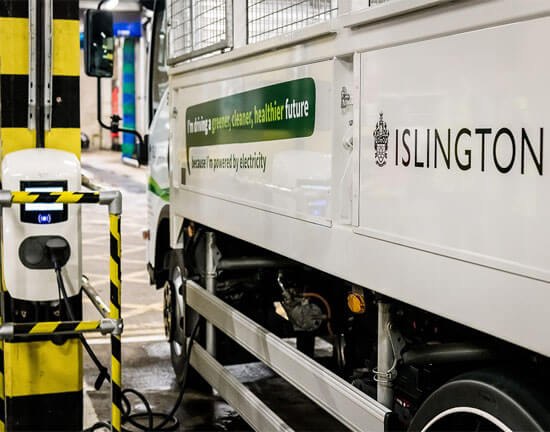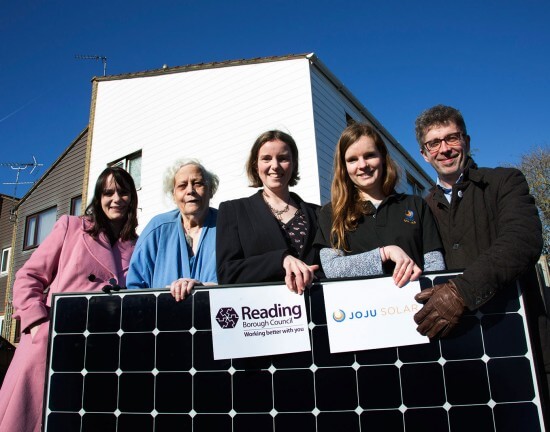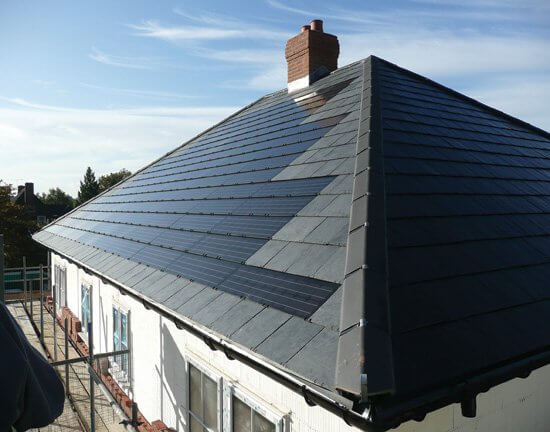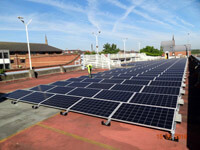As more and more people adopt electric vehicles, your business will need to provide charge points for your own fleets, staff and customers

Public Sector
Rooftop solar panels are the cheapest way of providing electricity to a building and could reduce your power costs by more than half
PUBLIC SECTOR GREEN INSTALLATIONS
The public sector is a key actor in the transition to a low carbon future. Because they can invest for the long-term and have a mandate to make society fairer and greener, organisations like Councils and Housing Associations can make a huge difference. They can set out bold and holistic visions for the future and directly implement them.
National government have set a target to remove internal combustion engine vehicles from our streets by 2035. This policy implies a complete change in our transport infrastructure – replacing all petrol stations with millions of electric vehicle charge points. Over the next decade, local councils will have to ensure there is adequate public charge point provision within their region.
As significant property owners, councils and housing associations also have a responsibility to reduce emissions from the buildings sector. Reducing bills for tenants helps reduce fuel poverty, and solar panels for social housing directly achieves this. Solar PV can also help councils minimise their internal running costs, which retains funds for frontline services.
Provide low carbon transport infrastructure
Improve local air quality
Improve residents health
Address fuel poverty
Reduce council running costs
PUBLIC SECTOR EV CHARGE POINTS
As the demand for electric vehicles grows, councils will have to provide public EV chargers in their region to ensure EV drivers can always be mobile. The market is expected to snowball, which will mean each council will be required to provide thousands of charge points across their jurisdictions.
Councils will have to provide several critical services:
- Public EV chargers in town-centre car parks, to attract EV drivers to local shops
- Fleet EV charging for the council’s internal fleets of vehicles and for their staff to travel to work
- On-street charge points for those without driveways – which can be more than 50% of households in urban areas
- Rapid charging infrastructure for essential mobility services such as taxis
Local councils also have responsibilities for air quality. Facilitating the switch to EVs will improve local air quality by removing internal combustion engine vehicles from the road, and improve the respiratory health of all residents.
Joju are one of the most active companies in the country assisting councils in managing their EV charge point installation programmes. We work with public authorities from feasibility studies, through to installation, commissioning and after-sales care. We are on major UK procurement frameworks for EV charge points including the Central Southern Regional Framework, Crown Commercial Services, ESPO and Transport for London.
With councils needing to deploy many thousands of units over the next decade, finance will be critical. That’s why Joju have developed a fully financed solution allowing councils to instal public EV chargers at zero up-front cost. Councils can also take a share in the income the charge points generate.
We’ve set up the Joju Charging Portal as a knowledge base for councils and other public bodies, such as the blue light sector. It has information on all types of public EV charging schemes, grants and funding, and how to commission a feasibility study from us.
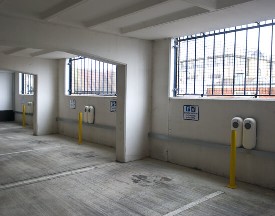

SOLAR PANELS FOR COUNCILS
Like any workplace, councils can benefit from solar panels installed on the roofs of their own offices, warehousing, libraries and schools. These commercial rooftop installations will give local authorities the most robust returns on investment, as the majority of electricity will be consumed in the buildings, directly reducing bills.
Additionally, such projects send a clear message around decarbonisation and green technology to the broader public. They act as a clear demonstrator that going solar is beneficial for the environment, and financially beneficial as well. These are significant acts for councils establishing a sustainable vision for their regions.
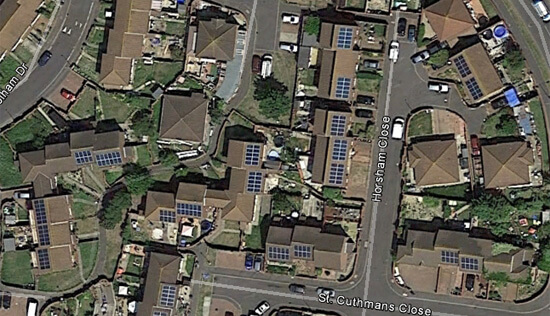

SOLAR PANELS FOR SOCIAL HOUSING
Over the last decade, solar panels have been widely deployed on social housing, with many authorities running programmes of hundred or thousands of homes. Historically, tenants would receive free electricity, and the councils would use feed-in tariff support to pay back their initial investment over the lifetime of the solar array. It’s a win-win – tenants benefit from lower bills, and councils make a small return on their investment as well.
We’ve installed major solar PV social housing programmes for numerous social housing providers, including multi-million-pound contracts for Brighton & Hove, Lewes, Oxford and Reading Councils.
Since the reduction of the feed-in tariff for solar PV in April 2016, and subsequent removal in 2019, solar panels for social housing have become less financially attractive as a project for councils. Nevertheless, the broad principle remains that investment in solar can significantly impact the livelihoods of the tenants. Opportunities still exist for installing social housing solar panels, especially for new developments.
OTHER GREEN ENERGY SOLUTIONS FOR SOCIAL HOUSING
Battery storage for social housing may also become an important technology over the coming years. Joju Solar are at the forefront of trying to develop new business models to allow this to happen.
Battery storage for social housing can reduce tenant bills when appropriately deployed. Batteries can store cheap night-time electricity when used in conjunction with a time-of-day tariff. They can even be used independently of solar, allowing councils to reach tenants who do not have suitable roofs for solar.
Battery storage is particularly suitable for blocks of flats, or other public sector developments where there is a ‘landlords supply’. Here the managing authority buys in electricity in bulk and then tenants are billed for their use by via sub-meters. We have developed a ‘between the meters’ battery storage model for a housing estate in Woking. Due to the benefits of aggregation, and the electricity tariff structure, it is some of the most cost-effective battery storage deployed anywhere in the country.
Over the coming years, councils will need to actively deploy electric vehicle charge points into areas of social housing. Just as fuel poverty is a concern at present, equity issues around access to electric mobility will also become important. It will be necessary for councils to ensure that the poorest in their community also have access to electric vehicles rather than being stuck using ICE vehicles. Failure to do so could result in the poorest communities having higher transport costs, lower air quality and the adverse health consequences that arise from this.
HOLISTIC PUBLIC SECTOR APPROACHES
As multi-technology specialists, Joju Solar are well placed to integrate your electric vehicle charge point needs with solar PV and battery storage. We can help councils develop their holistic low-carbon visions across both the transport and buildings sectors.
Rotherham Metropolitan Borough Council were among the first to recognise this. They implemented a rollout of 50 EV charge points across the borough. However, they realised that this would lead to an increase in electricity use across their estate. They therefore decided to offset the predicted increase in demand with their own solar power generation, hosted on their own buildings. They even complemented this with battery storage at some sites. It’s a neat way of ensuring that the emissions from electric vehicles are truly zero.
Solar carports, at offices or on car parks also offer an opportunity to deploy multiple green technologies holistically. Co-locating generation and EV charge points is a highly visual way of demonstrating a commitment to clean transport solutions.
Rotherham’s Holistic Approach
Here’s how Rotherham Metropolitan Borough Council developed a holistic scheme – with solar and batteries providing the power for their EV charge points
Find Out More about our Services
EV Charge Points for Councils
Find out how we can help you deliver major EV charge point programmes across your region.
Fully funded charge points
We can provide funding for councils, so you can roll out EV charging infrastructure at zero cost.
Solar PV
Our solar PV info-base will give you all the information you need to start developing your own PV programmes.
Solar for Schools
Solar schools are our speciality. We can deliver fully funded installations across your schools estate.






